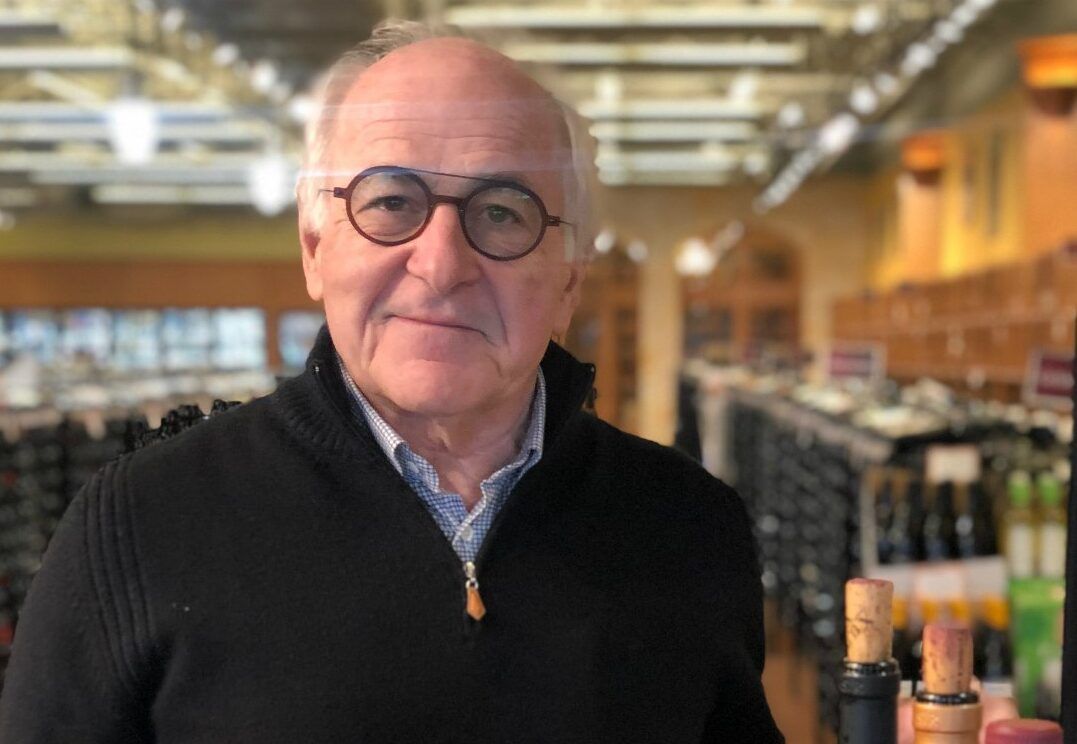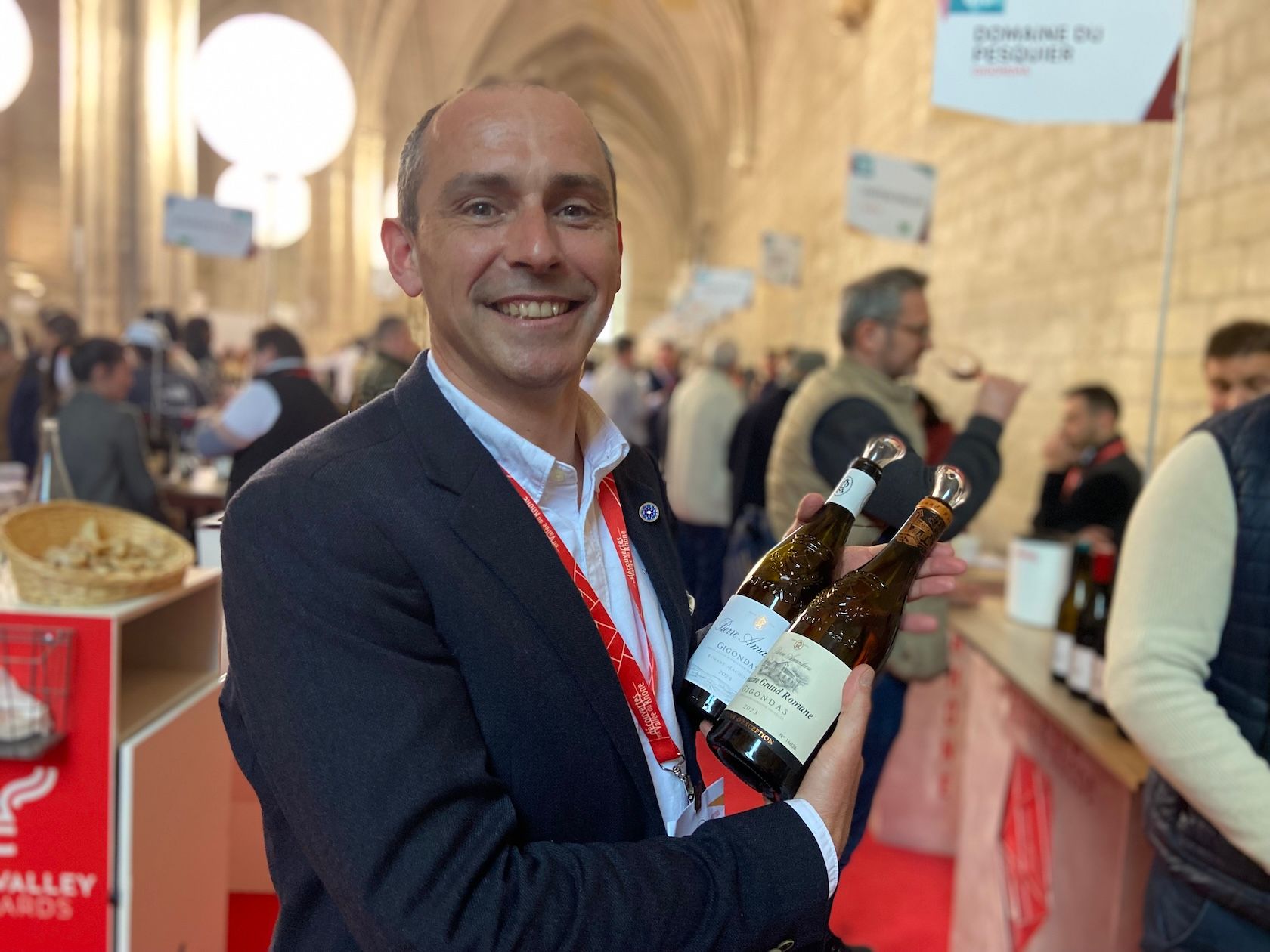“Given that Lebanon doesn’t have any industry, and that the once vibrant service sector (notably tourism and banking) has been wiped out by Covid and the economic crisis, wine is actually one of the few sectors with any global potential,” writes Keay.
It scarcely seems possible that almost 18 months have passed since the catastrophic blast at Beirut port, which killed 218, caused over £15bn of damage and transformed a grim economic crisis into near total collapse.
And with 2022 just around the corner, it is deeply depressing that no one’s been charged, nor any serious effort made to tackle the numerous crises facing this benighted country. Instead, squabbling politicians devote their energies to keeping themselves rich and the faction-based political system afloat. Although the new Najib Mikati government hopes to get aid money flowing again, high inflation, negative growth and increasing privation look set to be the lot of most Lebanese.
Like every sector of the economy, Lebanon’s wine industry has been reeling.
“Ever since the 2019 currency devaluation this country has been a disaster. Our middle class has been wiped out; purchasing power is around 15% of what it was pre-2019, and what you then paid $1 for, today you must pay $6,” says Etienne Debbane, co-founder and chairman of IXSIR winery.
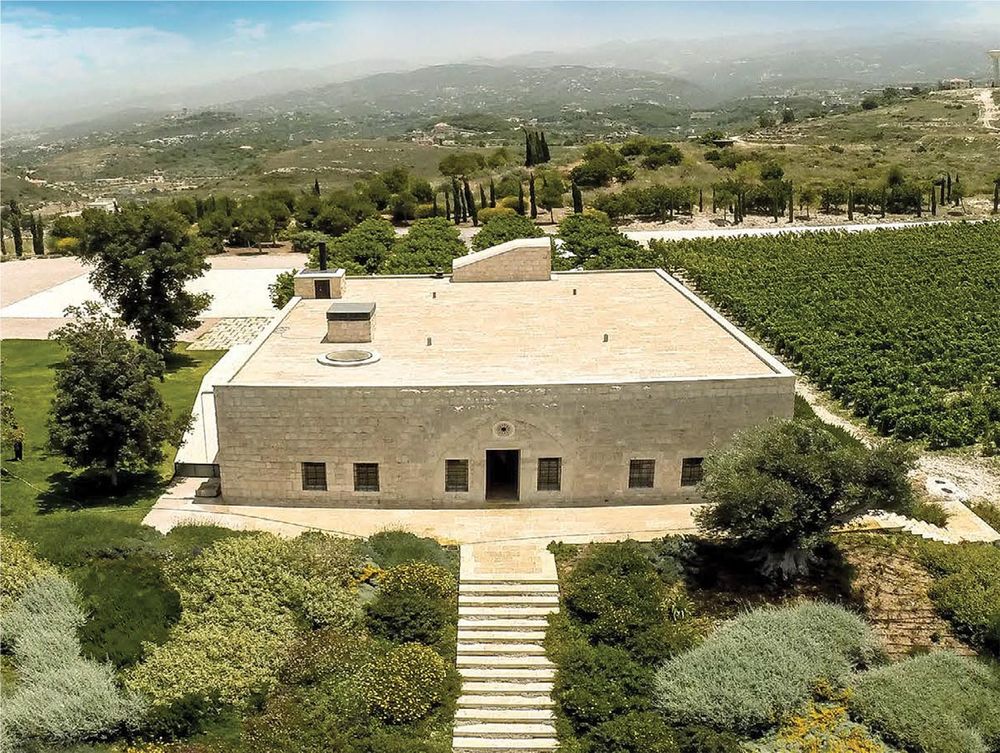
With much of the IXSIR winery underground, the building has been named as one of the world’s greenest
Established in Batroun, north of Beirut, in 2008 with former Nissan/Renault boss Carlos Ghosn famously a key founder shareholder, IXSIR is one of the faster growing wineries here. Debbane says one of the ironies of the current crisis is that more of his wine is now consumed in Lebanon than ever before; with imported drinks now well out of most people’s reach, Lebanese are turning to local products – including gin, which has become a flourishing local industry thanks to the preponderance of juniper trees. IXSIR have been happy to play its part by essentially selling at cost price.
“We are selling the same bottle for less than half of what we charged a year ago; we feel it’s important to support our customer base at this incredibly difficult time and encourage people to enjoy life,” he says.
To earn much needed hard cash, Debbane has been doing everything to boost exports, essential for financing the inputs required by the winery (everything from bottles to labels and corks, not to mention any machinery, all come from outside the country).
Things have actually been going well on this front. With the lifting of pandemic restrictions in the UK for example, sales have more than doubled to around 15,000 bottles whilst in other markets like the US, Canada and Asia sales have also been rising as news of IXSIR’s positive price-quality ratio has spread. This will enable IXSIR to increase production from 2020’s 600,000 bottles to a planned 700,000-800,000 in three to four years, which Debbane says will be “cruising speed” for the winery.
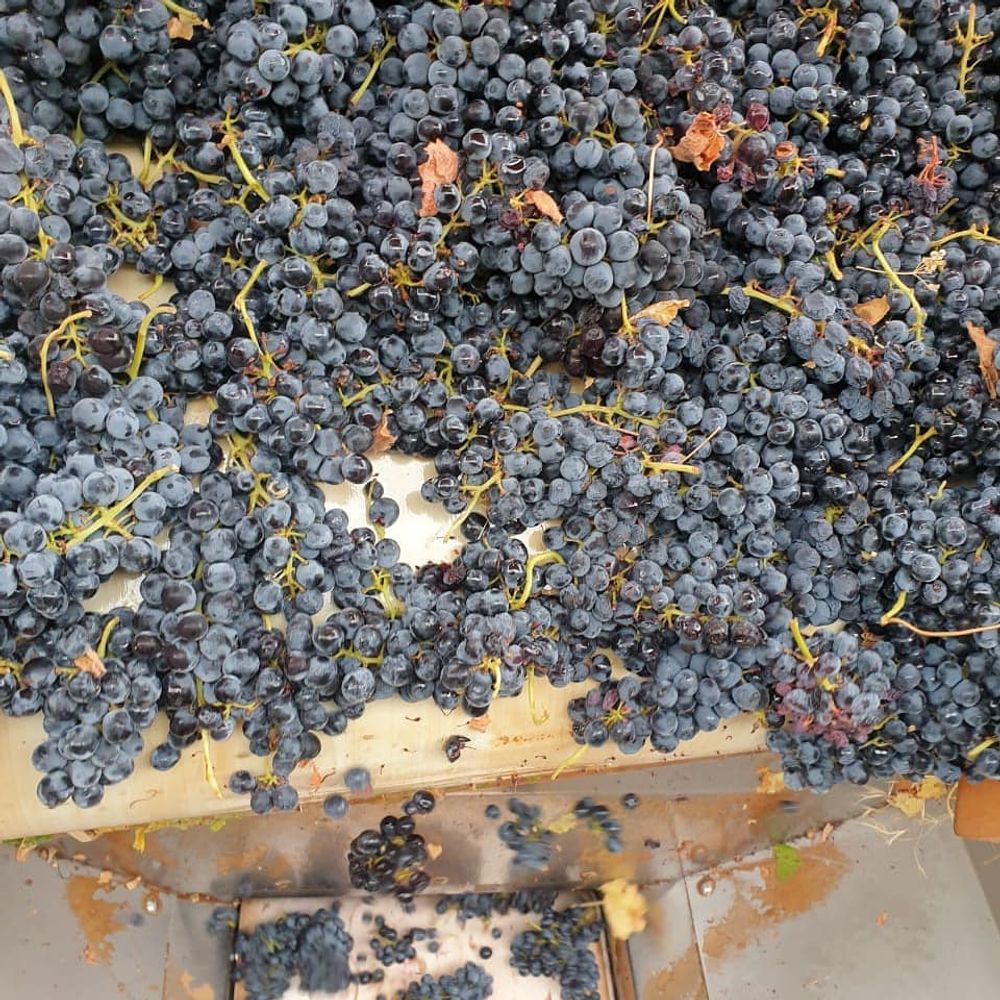
A familiar tale for 2020: low yields, high quality harvest
But IXSIR is still attempting to recover from the challenges of 2021 which almost overwhelmed Lebanon’s battered wine sector. Acute petrol shortages made it almost impossible for pickers and other workers to get to IXSIR’s winery and vineyards; electricity went down to just three hours a day whilst unusually hot weather and almost no rain made this one of the toughest summers on record, resulting in a 25% drop in yields although Debbane insists that the fruit that did make it was of exceptional quality.
“For much of the summer we had really hot winds blowing across from the desert so we had to pick two to three weeks early at the same time as having a shortage of pickers. But at least now we have some really good wine sitting in the tanks.”
He says the problems afflicting Lebanon’s wine sector have hit producers lacking IXSIR’s financial backup the hardest. IXSIR’s commitment to sustainability proved a godsend. Solar energy installations in a gravity-fed winery dubbed by CNN ten years ago as one of the world’s greenest buildings – using just a quarter of the energy typical for a winery of this size – helped it through. Conditions were still pretty challenging even with a back-up generator, however, especially with hard currency being so hard to come by. Cash up-front is the rule here.
“Fuel and water are key to survival in the Middle East and we had acute shortages of both. So good yield management really was key,” Debbane says.
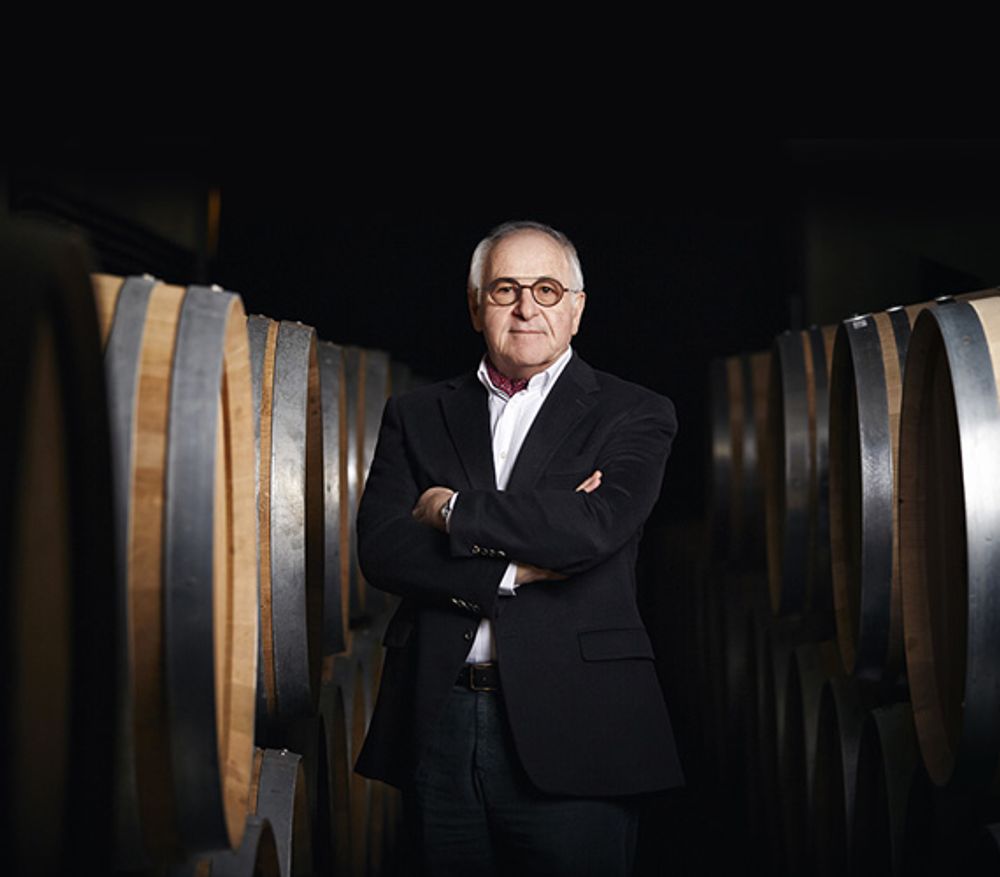
Etienne Debbane
To those who say focusing on Lebanon’s wine industry is misguided given the scale of the problems elsewhere – and the fact that much of Lebanon’s six million population don’t drink for religious reasons – Debbane says this misses the point. Given that Lebanon doesn’t have any industry, and that the once vibrant service sector (notably tourism and banking) has been wiped out by Covid and the economic crisis, wine is actually one of the few sectors with any global potential. It should be encouraged, he says.
“This country is ideal for quality winemaking with 300 days of sunlight a year, a 15-20 degree diurnal temperature difference and a great variety of very different soils. The industry doesn’t have a common face and faces increasingly tough times. We really need a proper organisation that can represent our interests and promote our wineries in foreign markets,” he says.
IXSIR seems to be doing a job here. The winery now makes eight wines – with 16 varieties planted, and no appellation or official production rules to have to follow. New releases are planned for next year, a sweet wine made from Touriga Nacional and fascinatingly, a Syrah made from grapes from six vineyards, located at various altitudes around the country including at 1800 metres, a vineyard considered the highest in the Western Hemisphere.
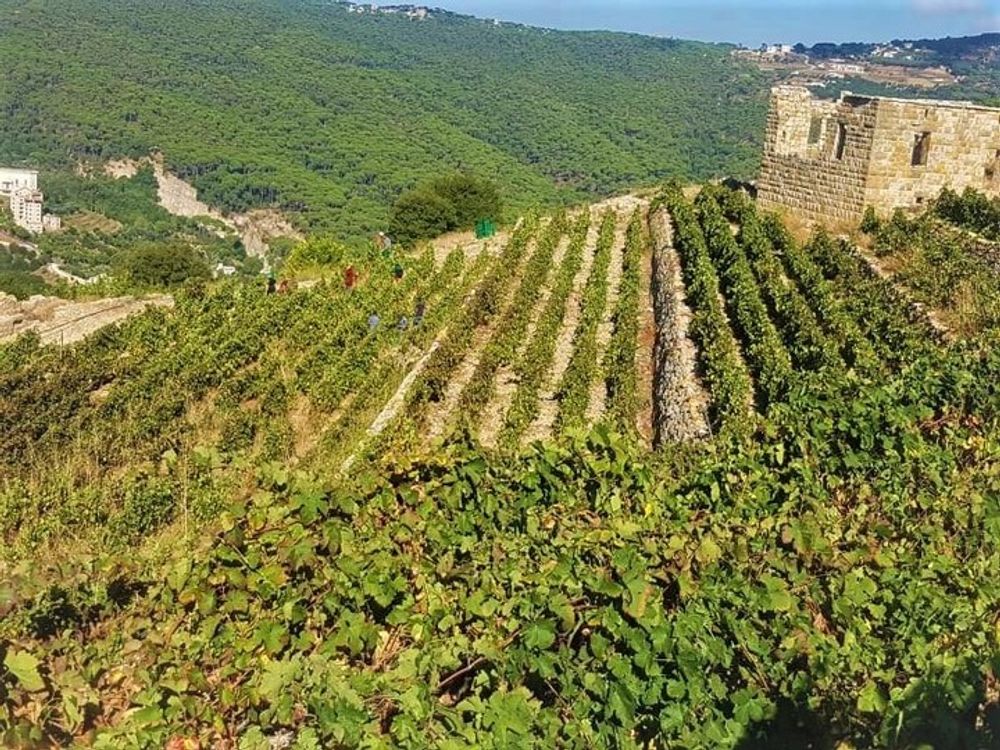
Picking the 2021 harvest in Jezzine
Some 20 hectares have been planted 2020-21 with new varieties including Pinot Noir and Assyrtiko, a variety Debbane reveres for its Phoenician roots. They won’t include Carignan and Cinsault, which in the absence of any native red varieties many producers believe best express Lebanese terroir, or the native Merwah which winemakers now make increasingly as a varietal wine.
“These two red varieties are fine in blends but can’t make really great quality wines whilst Merwah used to go straight to the distillery – it’s still early days of this being made as a standalone wine,” he says, suggesting that the Bordeaux, Burgundy and Rhône varieties IXSIR focuses on, generally in blends, have more than proven their worth.
Far more important to him are Lebanon’s terroirs, which the new Syrah will show off in all their glory. Lebanon is a tiny country (at 10,000 square kilometres, around half the size of Wales) yet has remarkably diverse terrain, everything from near desert to sub-Alpine, with IXSIR’s 120-plus hectares spread across the country. For Debbane this is key, particularly at a time of such uncertainty and disruption.
“Yes, we’re getting better in the vineyard and in the winery. But the priority will always be to make high quality wines that reflect the unique terroir of this damaged but beautiful country.”
Three of the Best
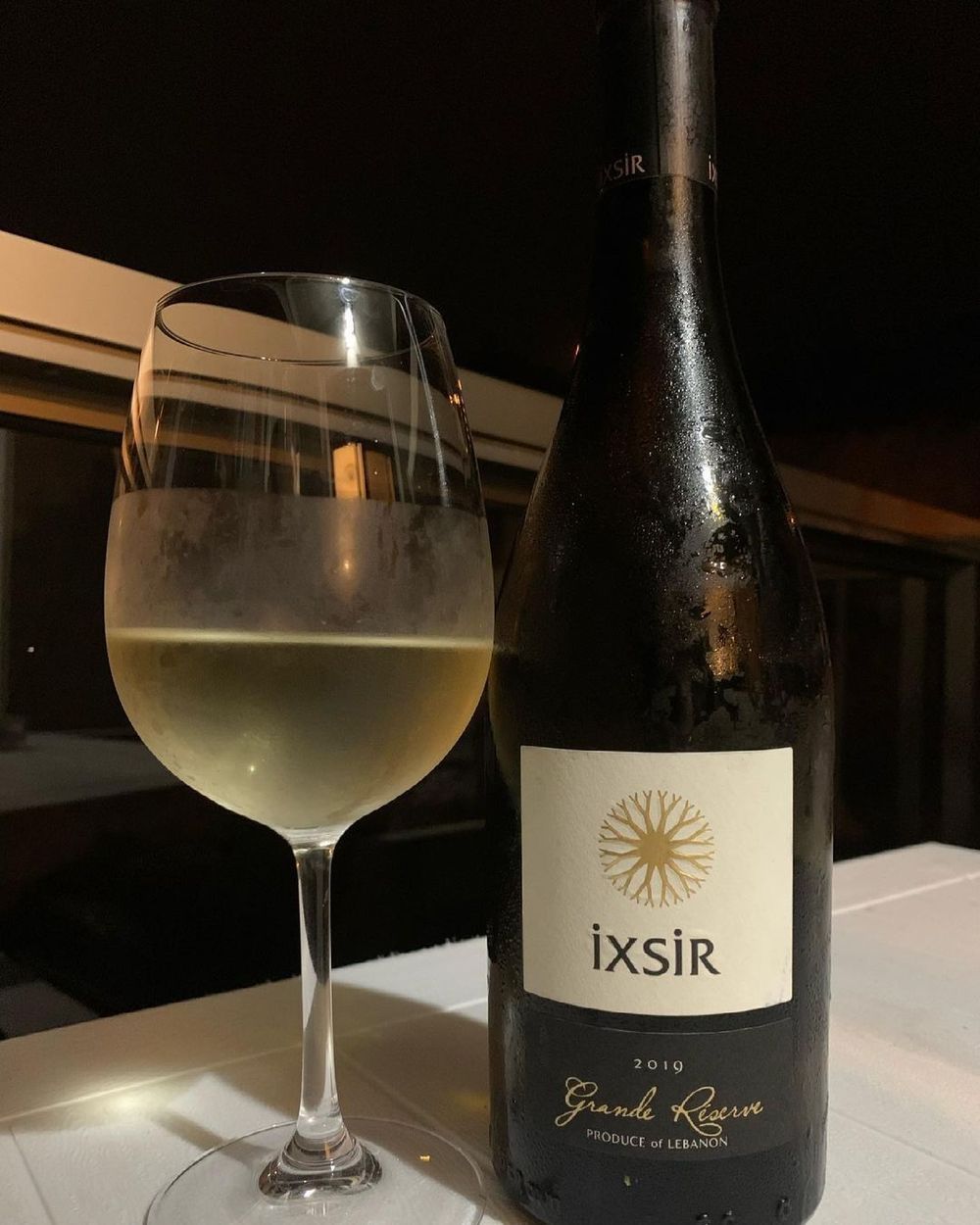
IXSIR Grande Reserve White 2019
An unusual blend of Viognier, Sauvignon and Chardonnay (the Rhône meets Bordeaux meets Burgundy) with the middle variety somehow the most dominant on the palate, this is a rich, quite smooth wine with lots of fruit and great length. IXSIR translates as Elixir, and that is what this is: an easy drinking and classy wine that sooths the soul.
IXSIR Grande Reserve Red 2013
A rich blend of Syrah and Cabernet, this is delicious – red and dark berry fruits with very smooth tannins and just the right amount of acidity to support a peppery, spicy finish. Very good value too.
IXSIR Grande Reserve Rosé 2019
A decidedly southern French blend of Mourvèdre, Cinsault and Syrah it has won huge plaudits since its launch, with the 2018 winning the BWW Award for the best rosé in the world. Lots of strawberry fruit on the palate, but with good grip and length, this is one of the best pink wines I’ve tasted in a long time.
IXSIR wines are imported into the UK through Enotria&Coe, which is a supplier partner of The Buyer. Discover more about them by clicking here.
